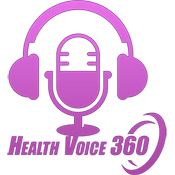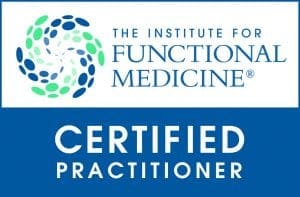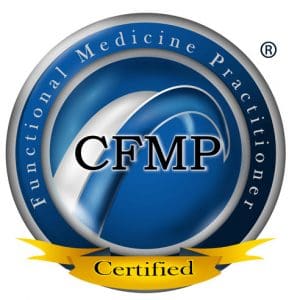If we take a look at breast cancer, there are common roads that everything links back to. Those roads are an increase in estrogen or activation of the estrogen receptor in the mammary epithelial cell. This is important because there are triggers in our lives that have estrogen or stimulate estrogen production, ultimately leading to an increased risk of developing breast cancer.Â
FactorsÂ
Environmental factors like pollutants and stress are highly associated with breast cancer. For example, the pollutant xenoestrogen has estrogen-like activity. From here, when women age and move towards menopause, they produce more estrogen. When there is a relative increase in natural estrogen plus the pollutants sending the body false signals, we see a relat
If we take a look at breast cancer, there are common roads that everything links back to. Those roads are an increase in estrogen or activation of the estrogen receptor in the mammary epithelial cell. This is important because there are triggers in our lives that have estrogen or stimulate estrogen production, ultimately leading to an increased risk of developing breast cancer.Â
Table of Contents
FactorsÂ
Environmental factors like pollutants and stress are highly associated with breast cancer. For example, the pollutant xenoestrogen has estrogen-like activity. From here, when women age and move towards menopause, they produce more estrogen. When there is a relative increase in natural estrogen plus the pollutants sending the body false signals, we see a relative increase in estrogen and stimulation through the estrogen receptors in the body. A great way to decrease these pollutants and fake hormones is to switch to all-natural products. These fake hormones are being stored in products like:
- Aluminum deodorantÂ
- Body wash
- ShampooÂ
- Laundry detergentÂ
- Air freshenersÂ
- And moreÂ
The other factor mentioned above is stress. The stress that is being referred to in this instance is emotional stress. The type of stress we do not have as much control over (aka physical). The reason we take a look at stress is that stress leads to more cortisol being released throughout the body. More stress can lead to less melatonin production. Consider the fact that those with breast cancer have a decrease in melatonin. Over time, a decrease in melatonin results in an upregulation of estrogen receptors, leading to an increase in estrogen. Ways to help reduce stress include:
- MeditationÂ
- ExerciseÂ
- GroundingÂ
- Deep breathing techniquesÂ
DNA
As we have learned over the years, the DNA we are born with is not the DNA we die with. Yes, we are given a specific set of genes when we are born but our environmental factors have been proven to alter the expression of these genes. When we have a highly oxidized reactive molecule, it can adduct with DNA. This ultimately leads to DNA adduct formation that clips portions of our DNA out causing a mutation. Over time, with enough mutations, we can see patients develop cancer and their immune system is unable to fight it off as it no longer works properly.Â
DiagnosticsÂ
We have the ability to perform a DNA Estrogen test to look at the predispositions individuals are born with. Additionally, we can perform hormone tests through ZRT Laboratory. A sample estrogen report from DNA Life can be seen below:Â
Body Composition
Previously, in this article, I mentioned cortisol and stress. You may be curious as to what body composition has to do with these two factors. Fat cells are essential stress-producing factories. They produce more cortisol than lean muscle cells and at a quicker rate. The more fat we have on the body, the more internal stress and damage we are causing. At our clinics, we use the InBody 770 device to analyze lean muscle mass, visceral fat (the fat around the organs- the fat that is responsible for many health conditions), intra and extracellular water and obtain your basal metabolic rate. The document below shows more in detail what the InBody 770 is capable of.Â
Lifestyle changes
Lifestyle changes incorporated now could help reduce the risk of developing cancer later on. Some simple ways to reduce your risk include:
- Eating a lot of organic vegetablesÂ
- Avoiding excess pollutantsÂ
- Exercise
- Sleeping in a dark room for 8-10 hours a nightÂ
- Reducing stressÂ
Making small changes is completely do-able! We do not expect anyone to change their habits overnight, but small steps make a large difference over time. Getting blackout curtains is a simple step to eliminate excess light. You can also set an alarm on your phone to signal bedtime and to begin your night of rest. -Kenna Vaughn, Senior Health CoachÂ
References:Â
Zava. “551A: Breast Cancer and Estrogen Metabolism.†FunctionalMedicineUniversity. Alzheimer’s disease: The Aging Brain, 8 Feb. 2021.Â
Additional Online Links & Resources (Available 24/7)


Â
Online Appointments or Consultations:  bit.ly/Book-Online-Appointment


Â
Online Physical Injury / Accident Intake Form: bit.ly/Fill-Out-Your-Online-History


Â
Online Functional Medicine Assessment: bit.ly/functionmed
Â
Â
Â
Disclaimer
Â
The information herein is not intended to replace a one-on-one relationship with a qualified health care professional, licensed physician, and is not medical advice. We encourage you to make your own health care decisions based on your research and partnership with a qualified health care professional. Our information scope is limited to chiropractic, musculoskeletal, physical medicines, wellness, sensitive health issues, functional medicine articles, topics, and discussions. We provide and present clinical collaboration with specialists from a wide array of disciplines. Each specialist is governed by their professional scope of practice and their jurisdiction of licensure. We use functional health & wellness protocols to treat and support care for the musculoskeletal system’s injuries or disorders. Our videos, posts, topics, subjects, and insights cover clinical matters, issues, and topics that relate and support, directly or indirectly, our clinical scope of practice.* Our office has made a reasonable attempt to provide supportive citations and has identified the relevant research study or studies supporting our posts. We provide copies of supporting research studies available to regulatory boards and the public upon request. We understand that we cover matters that require an additional explanation of how it may assist in a particular care plan or treatment protocol; therefore, to further discuss the subject matter above, please feel free to ask Dr. Alex Jimenez or contact us at 915-850-0900.  Read More…
Dr. Alex Jimenez DC, MSACP, CCST, IFMCP*, CIFM*, CTG*
email: coach@elpasofunctionalmedicine.com
phone: 915-850-0900
Licensed in Texas & New Mexico
General Disclaimer
Professional Scope of Practice *
The information herein on "Hormone Factors and Risks for Breast Cancer" is not intended to replace a one-on-one relationship with a qualified health care professional or licensed physician and is not medical advice. We encourage you to make healthcare decisions based on your research and partnership with a qualified healthcare professional.
Blog Information & Scope Discussions
Welcome to El Paso's Premier Wellness and Injury Care Clinic wellness blog, where Dr. Alex Jimenez, DC, FNP-C, a board-certified Family Practice Nurse Practitioner (FNP-C) and Chiropractor (DC), presents insights on how our team is dedicated to holistic healing and personalized care. Our practice aligns with evidence-based treatment protocols inspired by integrative medicine principles, similar to those found on dralexjimenez.com, focusing on restoring health naturally for patients of all ages.
Welcome to El Paso's Premier Wellness and Injury Care Clinic & wellness blog, where Dr. Alex Jimenez, DC, FNP-C, a board-certified Family Practice Nurse Practitioner (FNP-C) and Chiropractor (DC), presents insights on how our team is dedicated to holistic healing and personalized care. Our practice aligns with evidence-based treatment protocols inspired by integrative medicine principles, similar to those found on dralexjimenez.com, focusing on restoring health naturally for patients of all ages.
Our areas of chiropractic practice include Wellness & Nutrition, Chronic Pain, Personal Injury, Auto Accident Care, Work Injuries, Back Injury, Low Back Pain, Neck Pain, Migraine Headaches, Sports Injuries, Severe Sciatica, Scoliosis, Complex Herniated Discs, Fibromyalgia, Chronic Pain, Complex Injuries, Stress Management, Functional Medicine Treatments, and in-scope care protocols.
Our information scope is limited to chiropractic, musculoskeletal, physical medicine, wellness, contributing etiological viscerosomatic disturbances within clinical presentations, associated somato-visceral reflex clinical dynamics, subluxation complexes, sensitive health issues, and functional medicine articles, topics, and discussions.
We provide and present clinical collaboration with specialists from various disciplines. Each specialist is governed by their professional scope of practice and their jurisdiction of licensure. We use functional health & wellness protocols to treat and support care for the injuries or disorders of the musculoskeletal system.
Our videos, posts, topics, subjects, and insights cover clinical matters, issues, and topics that relate to and directly or indirectly support our clinical scope of practice.*
Our office has reasonably attempted to provide supportive citations and has identified the relevant research studies or studies supporting our posts. We provide copies of supporting research studies available to regulatory boards and the public upon request.
We understand that we cover matters that require an additional explanation of how they may assist in a particular care plan or treatment protocol; therefore, to discuss the subject matter above further, please feel free to ask Dr. Alex Jimenez, DC, APRN, FNP-BC, or contact us at 915-850-0900.
We are here to help you and your family.
Blessings
Dr. Alex Jimenez DC, MSACP, APRN, FNP-BC*, CCST, IFMCP, CFMP, ATN
email: coach@elpasofunctionalmedicine.com
Licensed as a Doctor of Chiropractic (DC) in Texas & New Mexico*
Texas DC License # TX5807
New Mexico DC License # NM-DC2182
Licensed as a Registered Nurse (RN*) in Texas & Multistate
Texas RN License # 1191402
ANCC FNP-BC: Board Certified Nurse Practitioner*
Compact Status: Multi-State License: Authorized to Practice in 40 States*
Graduate with Honors: ICHS: MSN-FNP (Family Nurse Practitioner Program)
Degree Granted. Master's in Family Practice MSN Diploma (Cum Laude)
Dr. Alex Jimenez, DC, APRN, FNP-BC*, CFMP, IFMCP, ATN, CCST
My Digital Business Card




















